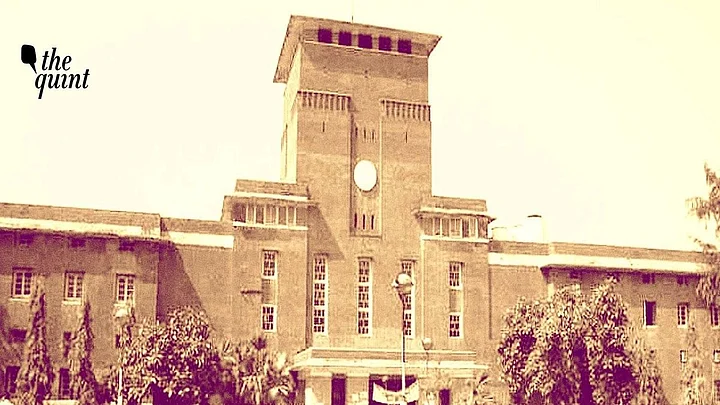On 12 September, the Delhi University (DU) vice-chancellor Yogesh Singh launched the admission portal for DU, called the Common Seat Allocation System (CSAS-2022). The portal closes on 3 October.
This is the first time that the results of the Common University Entrance Test (CUET) will decide who gains admission in DU, instead of cut-off lists.
Here’s all you need to know about applying for undergraduate courses in DU-affiliated colleges:
Who is eligible to apply?
Anyone who attempted the CUET, whose results are expected to be announced any day now, can apply. The admission is open for 79 undergraduate programmes across 67 colleges, departments, and centres affiliated to DU.
Where can students apply?
The official site where applicants have to register is http://admission.uod.ac.in/ and the link to the CSAS portal will be updated there.
Is there a registration fee?
Yes, there’s a one-time payment, which is non-refundable. Students from the Scheduled Castes (SC), Scheduled Tribes (ST), and Persons With Benchmark Disabilities (PWBD) categories will have to pay Rs 100 and those belonging to the Unreserved (UR), Other Backward Classes Non-creamy Layer (OBC-NCL), and Economically Weaker Sections (EWS) category will have to pay Rs 250.
What is the process of applying?
There are three phases. In the first phase, students have to fill the forms for DU. In phase two, candidates will fill in their preferences, and in phase three, there will be seat allotment-cum-admission.
After this, trials for sports quota and extracurricular activities will begin from 1 October and 10 November, respectively.
What will be the basis of the allotment of seats?
The seats will be allotted on the basis of the CUET score, which are expected to be declared by Thursday, 15 September. The entrance test was conducted in phases from mid-July to August-end. This is the first time that CUET has been made compulsory for undergraduate admissions in central universities, including DU.
What are the things to keep in mind while applying?
All the communication will be done through the email ID provided by the applicant, so it is important to fill an email ID which is easily accessible and active at all times.
Filling the personal details correctly is also important as they can’t be changed afterwards.
While filling the class 12 marks, applicants need to be accurate in case there is a merit tie and a tie-breaker has to be considered. There is a provision for that.
When can I expect the colleges to upload the lists for their courses?
After the admission portal is shut, the university will prepare their data, after which the colleges will start uploading the rank lists for their courses.
What to do after seat allotment?
The candidate will have an option to accept the allotted seat before the deadline, which will be notified. If the candidate does not accept the provisional seat, they will not be considered for the further rounds of CSAS-2022.
After the seat is accepted, the concerned college will verify the documents which were earlier submitted.
After the process of verification, the candidate will be either rejected or accepted.
Once accepted, the applicant will have to pay the admission fee.
What if I am not satisfied with the college I got?
There is an upgradation facility for all the students of CSAS-2022, except those whose applications were rejected or who declined the seats in the first round. The students who have got upgraded seats must accept the seat. In case they fail to do so, the candidate will be not considered for further rounds. The upgradation will be carried out after all the rejections, withdrawals, and cancellations. The details of the remaining seats will be published before every round on admission.uod.ac.in.
Can a student ‘freeze’ a seat?
Yes, if the student likes, they can freeze the previous seat they were allotted through their dashboard and hit the FREEZE button.
After this, they will not be considered for the further upgradation and the old seat will be retained.
Is there any provision for mid-entry?
Yes, students need to pay Rs 1,000 as the mid-entry fee but the provision doesn’t exist for all courses such as BA Music, BSc Physical Education, Health Education, and Sports.
No mid-entry will be allowed for performance-based programmes.
How will the seat allocation be done in performance-based programmes?
For the seat allocations in performance-based programmes, 50 percent weightage will be given to CUET, and the rest of the 50 percent weightage will be given to trials.
